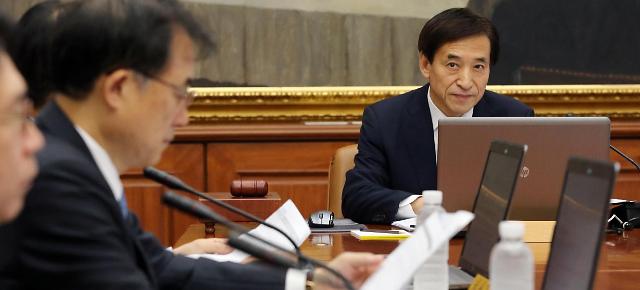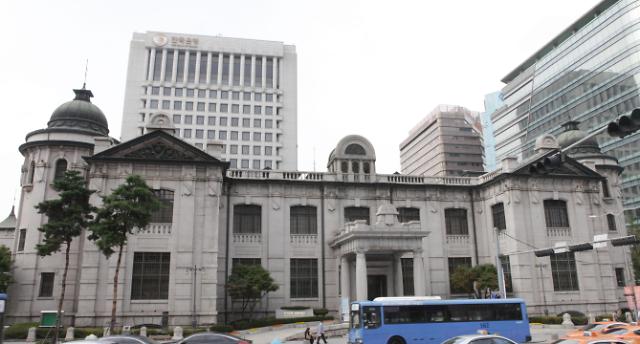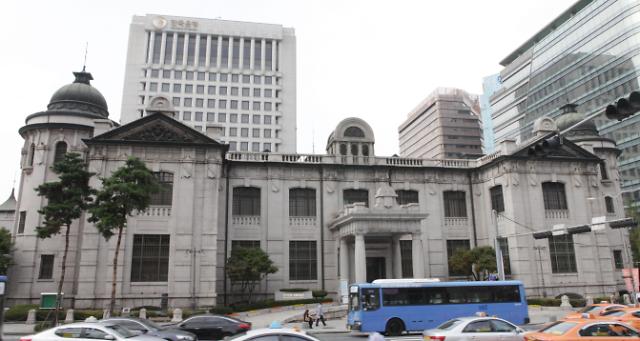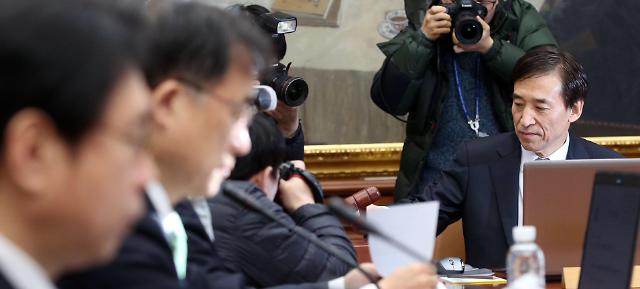
Last month, the Bank of Korea (BOK) slashed the base rate by a quarter percentage point, citing a decline in exports and domestic consumption following the first outbreak of the Middle East Respiratory Syndrome (MERS) in the country on May 20. The MERS epidemic has slowed in recent weeks.
The BOK has lowered the key rate by a total of 1 percentage point since August last year, in an effort to bolster growth momentum.
Following is the full text of a statement the central bank issued after its Monetary Policy Committee meeting early Thursday.
"Based on currently available information, the committee considers that the trend of economic recovery in the United States has grown evident again, and that the improvements in the euro area have continued as well. In emerging market countries including China, the trends of slowing growth have continued. The committee forecasts that the global economy will sustain its modest recovery going forward, centering around advanced economies such as the United States, but judges that the possibility exists of its being affected by the heightened international financial market volatility due to the situation in Greece, by changes in the monetary policies of major countries and by the weakening of economic growth in emerging market countries.
"Looking at the Korean economy, amid continued sluggishness in exports the committee notes that, under the influence of MERS outbreak for example, consumption has declined significantly and the sentiments of economic agents have worsened. On the employment front, the unemployment rate has risen due mainly to an expansion in job search activities, but the employment-to-population ratio has also increased as the number of persons employed has grown. The committee forecasts that the domestic economy will show a trend of recovery going forward, owing chiefly to the expansionary macroeconomic policies and to the subsiding of the shock from the MERS outbreak, but judges the uncertainties surrounding the growth path to be high.
"Consumer price inflation rose from 0.5 percent the month before to 0.7 percent in June, due mainly to increases in prices of agricultural, livestock and fisheries products and to a narrowing of the extent of decline in petroleum product prices. Core inflation excluding agricultural and petroleum product prices fell slightly to 2.0 percent, from 2.1 percent in May. Looking ahead, the committee forecasts that inflation will continue at a low level, due mainly to the effects of the low oil prices. In the housing market, the upward trends of sales and leasehold deposit prices have continued in both Seoul and its surrounding areas and the rest of the country.
"In the domestic financial markets, influenced mostly by the situation in Greece, stock prices have fallen and the Korean won has depreciated against both the U.S. dollar and the Japanese yen. Long-term market interest rates have risen, in response mainly to expectations of a policy rate hike by the U.S. Federal Reserve and of an increased volume of Korean Treasury bond issuance. Bank household lending has sustained a trend of increase at a level substantially exceeding that of recent years, led by mortgage loans.
"Looking ahead, while working to sustain the recovery of economic growth, the committee will conduct monetary policy so as to maintain price stability over a medium-term horizon and pay attention to financial stability. In this process, it will closely monitor the trend of increase in household debt and external risk factors, such as the situation in Greece and shifts in major countries’ monetary policies, as well as the trends of capital flows."




